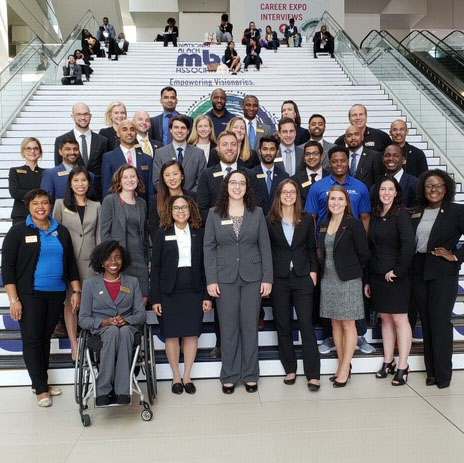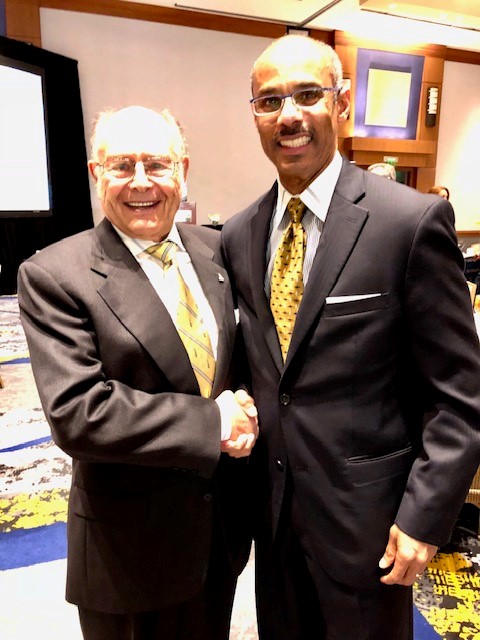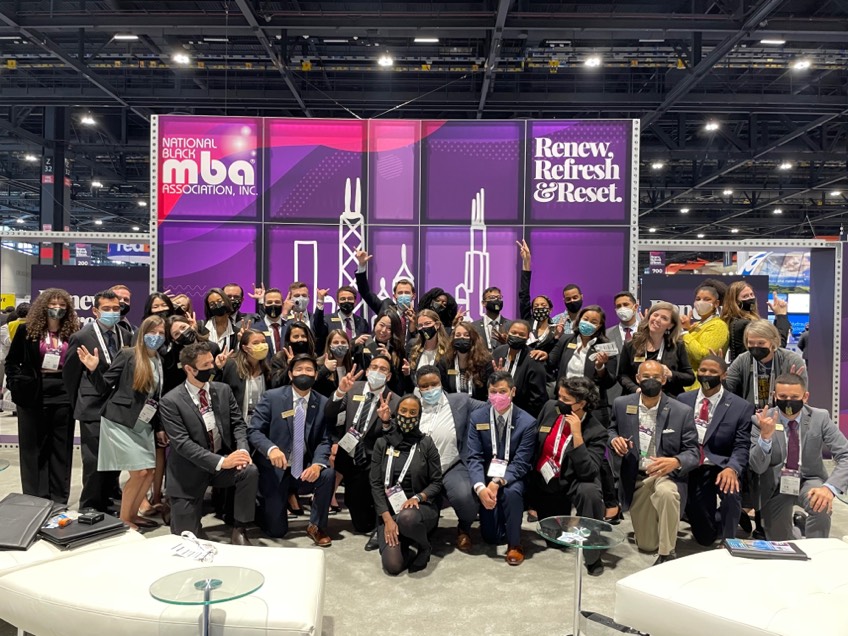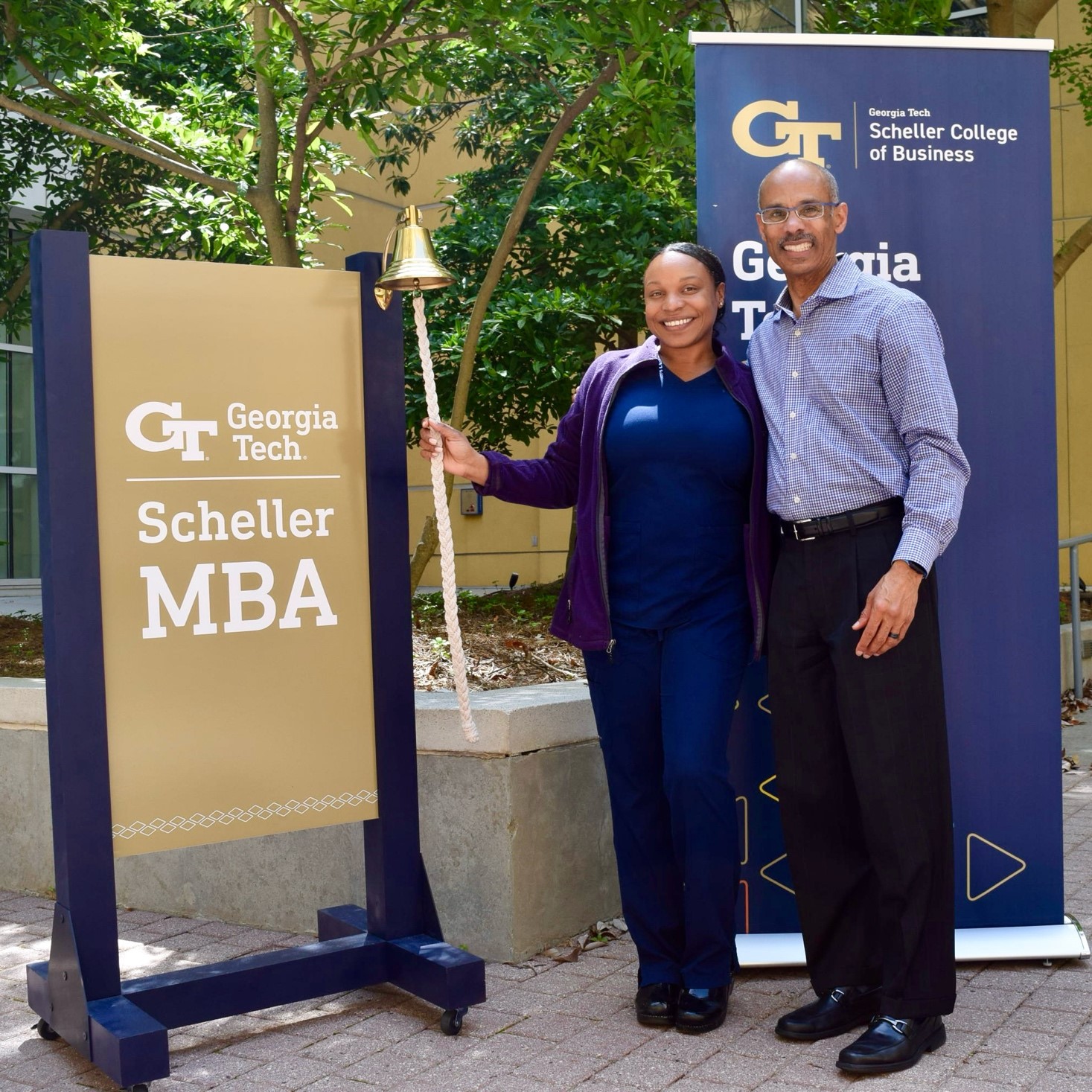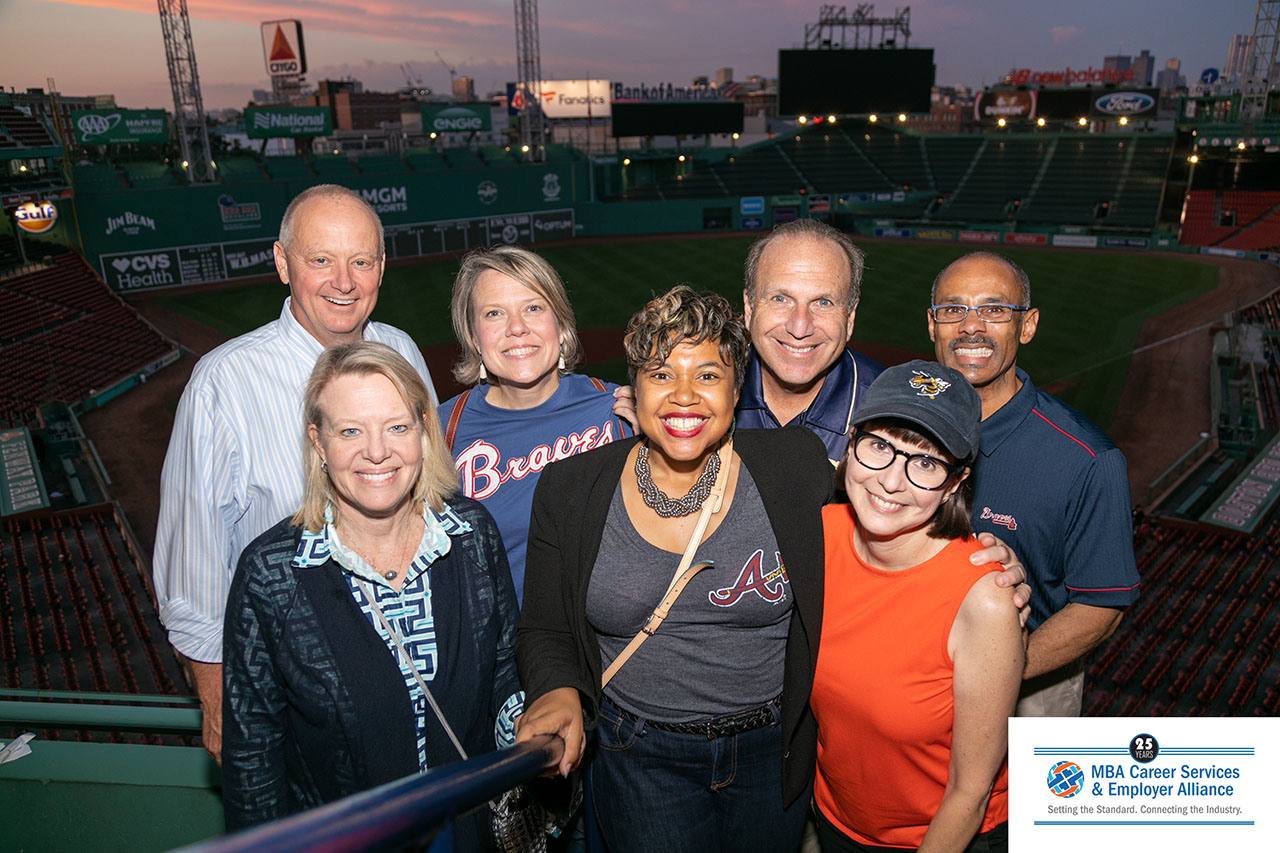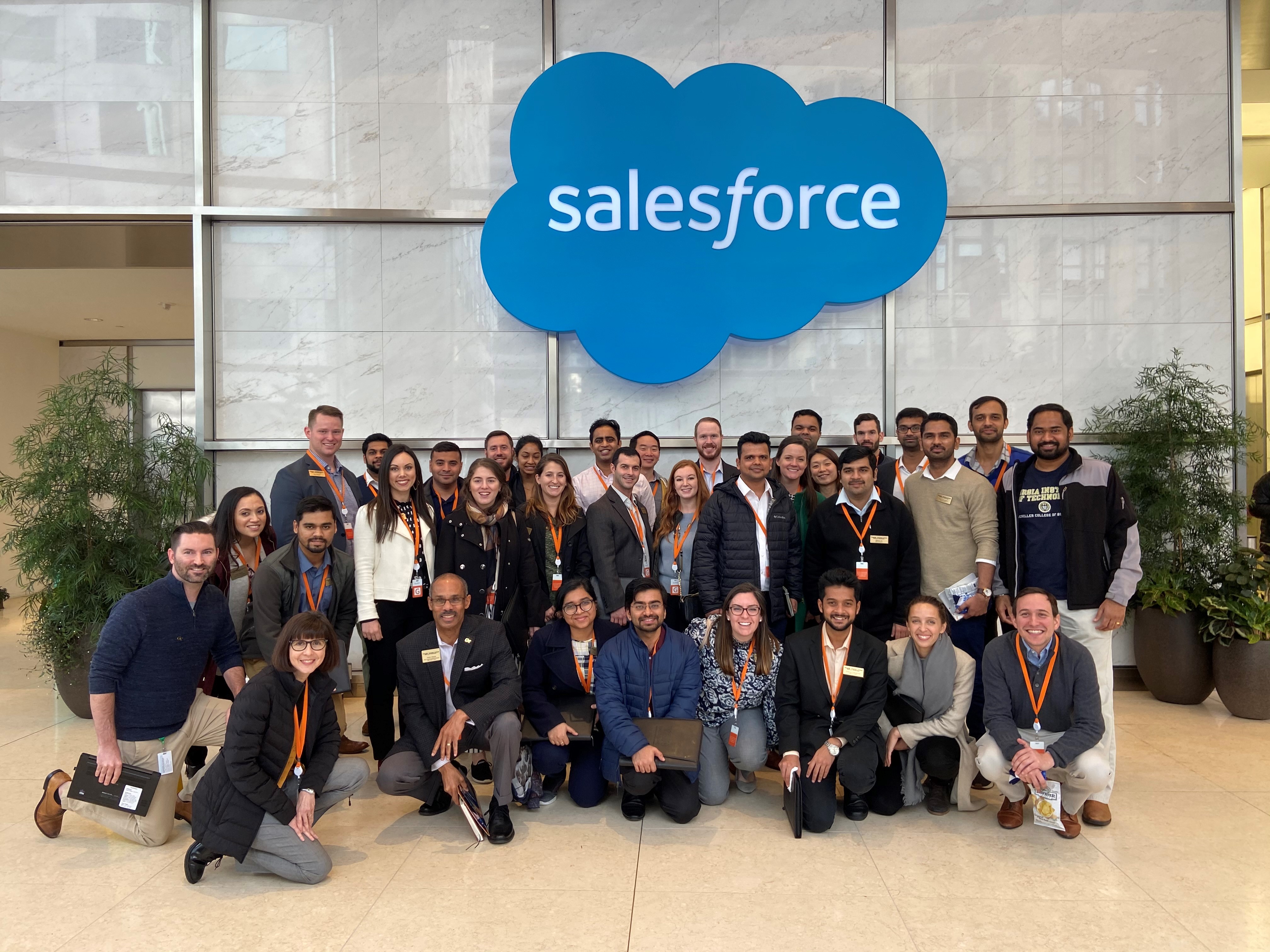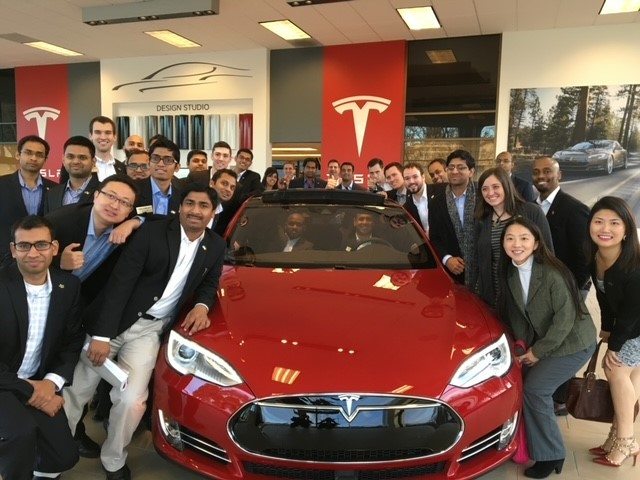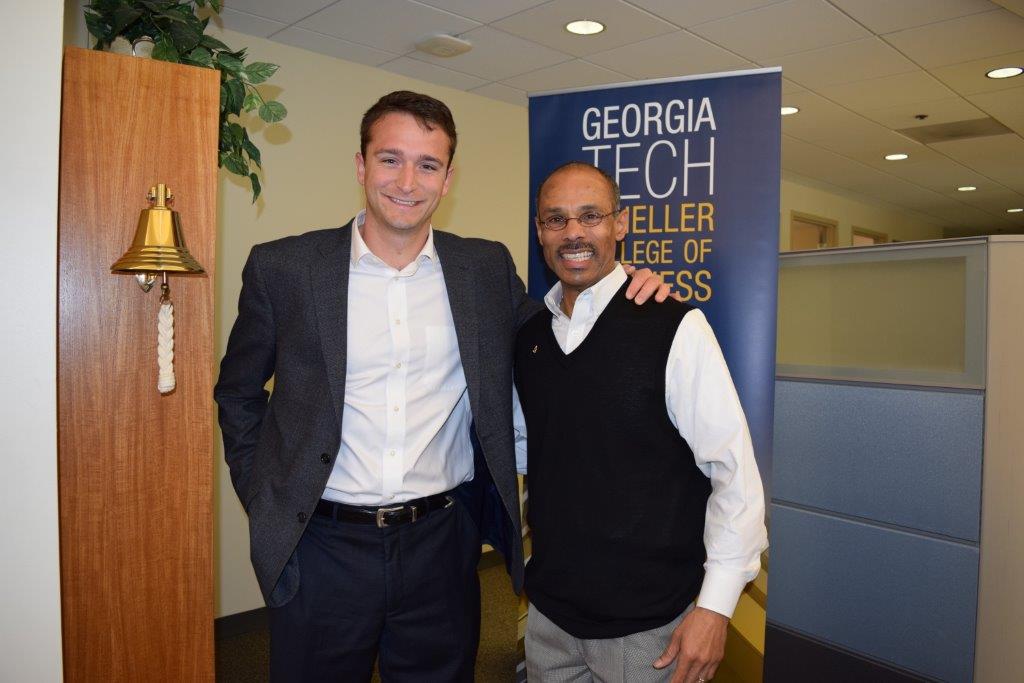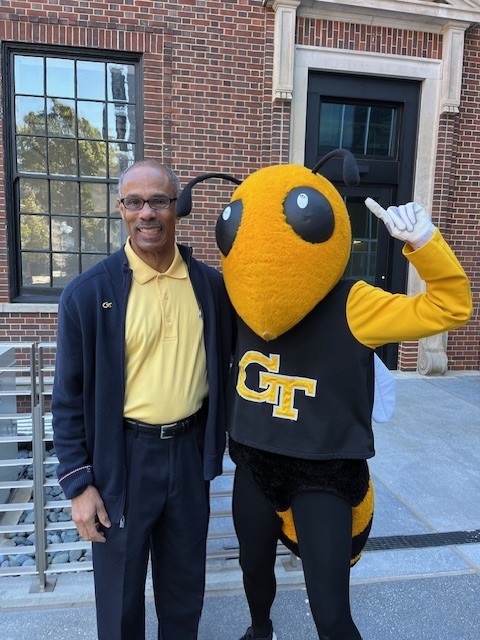Kevin Stacia, MBA Career Coach and Corporate Relations Manager, will retire on June 1, 2024 after a 15-year career at Georgia Tech. As a key member of globally renowned Jones MBA Career Center team, Kevin has touched the lives of countless MBA students through his mentorship and guidance.
We sat down with Kevin to reflect on his experience at Scheller, key lessons learned, advice for students and aspiring career development professionals, and hopes for the future.
Reflecting on your 15-year tenure with Georgia Tech, what are some of the moments that stand out to you the most?
Several moments stand out to me as particularly significant. These moments collectively highlight the impact and progress the Jones MBA Career Center has made over the years in shaping the future of our students and the MBA program.
- Receiving the 2018 Ernest Scheller Jr. Award from Mr. Scheller himself was a profound honor.
- Participating in bell ringing celebrations with students from my first graduating class and now with my last graduating class has been incredibly rewarding.
- Achieving a 100% employment rate for the MBA Class of 2022 within 90 days of graduation was a testament to the quality of our program and the dedication of our students and career services team.
- Witnessing the growth of our ‘Tech Treks’ to the West Coast between 2013 and 2019. What started as a small group of a dozen students meeting in a Walmart parking lot to carpool to a few company sites evolved into a full-fledged charter bus trip with students visiting multiple sites and attending alumni receptions.
- Serving on the MBA Career Services & Employer Alliance (MBACSEA) Board of Directors and as the 2018 Global Conference Co-Chair allowed me to contribute to the broader MBA community.
Can you share a particular instance where you felt you made a significant impact on a student's career path?
The primary focus for one of my students was to work for a specific local employer. The student was successful in securing an internship there, but unfortunately business circumstances didn’t result in a full-time job offer.
After several discussions to get beyond the initial disappointment, a few practice interviews, and some connections with MBA alums, I recommended that the student apply for an opportunity with a major company in a different industry. The student hadn’t considered that option, but got excited after learning more about the position, worked hard to get prepared for the interview, and was ultimately able to secure the job and is now thriving in the role.
Over the years, how have you seen the career aspirations of MBA students evolve, and how have you adapted your coaching to meet their changing needs?
Consulting is an industry of high interest to our students and securing a job is very competitive. In the past, our students were successful in securing jobs with great firms, but the top tier firms were not providing them with the opportunity to compete. However, once a few students had the opportunity to compete successfully, the picture changed.
Now, our students target and find success in all consulting opportunities, including with top tier firms. Our career services team is providing more robust case interview training, prep resources, and collaboration with the MBA Consulting Club to support the consulting job search.
Based on your work as a corporate relations manager, what would you say is a common thread in what companies are looking for in their hires?
Employers all want candidates who can build relationships with their clients, collaborate effectively with their colleagues, and articulate their thoughts clearly. In addition, problem solving skills, including the ability to analyze and interpret data for business decision making, is critical. Finally, being adaptable to the ever-changing business environment is also an essential skill.
As a seasoned career coach, what advice would you give to someone just starting in this field, especially in an academic environment like Georgia Tech?
There will be times when you will need to provide specific advice and direction, but spend most of your time listening and asking questions of your students to empower them to make good decisions versus giving them the answers.
Develop a network of colleagues (e.g. career services, employers, alums, etc.) that you can call on to exchange ideas, learn from and share best practices.
Establish good frameworks, templates, and resources to access in your coaching toolbox, but recognize that you will have to apply those tools differently because each student has a unique journey and individual needs.
As you transition into retirement, what aspects of your work do you think you'll miss the most?
There are several aspects of my work that I know I'll miss deeply. The collegial environment within our career services team and the broader Scheller community has been a significant source of professional and personal fulfillment for me. The camaraderie and support we've shared have made every challenge easier to face and every success more rewarding.
I'll particularly miss the opportunity to get to know our MBA students on a personal level. Supporting their development and watching their journeys unfold—from entering with dreams and aspirations to graduating with exciting new careers—has been incredibly rewarding. Their energy, ambition, and resilience have been a constant source of inspiration.
Additionally, I will miss the enjoyable experiences of traveling with my colleagues to various conferences and with students on Tech Treks and National Black MBA Association career fairs. These trips have been not only professionally enriching but also filled with fun moments and bonding experiences that I'll cherish forever.
What are your hopes for the future of Scheller after your departure?
My hopes are filled with aspirations for continued growth and positive change. I hope Scheller will maintain its dedication to fostering a collegial, inclusive, and collaborative culture where students, staff, and faculty alike have the space and opportunities to contribute meaningfully and grow both personally and professionally.
I also hope Scheller will persist in its efforts to enhance the ethnic diversity of its faculty, students, and staff. This diversity enriches our community, bringing varied perspectives that drive innovation and understanding.
Moreover, I hope the Scheller community will remain open to creative ideas and embrace the necessary changes to continually improve the student experience. It's this spirit of adaptability and forward-thinking that will ensure Scheller not only keeps pace with the evolving educational landscape but also leads the way in shaping it.
